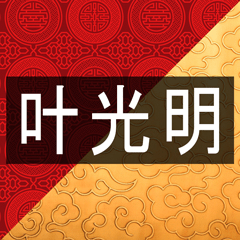Chinese Spiritual Civilisation
Deng XiaoPing said that the China he had built had “one hand which is tough while the other is soft.” He meant that China and its people required two hands, one strong and material and one soft and ‘spiritual’. Deng said that “to get rich is glorious”, but then became concerned that in the rush to become rich quickly, ‘spirituality’ had been ignored and forgotten. What was needed to rectify the balance was a “Socialist spiritual civilisation” (社会主义精神文明).
Some say that Samuel Huntington’s book “The Clash of Civilisations” raised Chinese alarms, arguing that “only powers with a strong ‘spirituality’ such as the U.S. or the Islamic world would be significant players in the clash of civilisations. The Soviet Union had lost its place for not having a viable ‘spirituality’. Thus China must find a Chinese ‘spirituality’.
Xi Jinping seems to be wrestling with the same problem. China is a military and economic superpower, but its citizens are not motivated by a deep, ‘spiritual’ loyalty to the Party and the government. That is partly because there is an issue: how does an atheistic political system define what is ‘spiritual’. It was never really clear what the ‘spiritual civilisation’ that Deng and Jiang proposed actually meant.
One obvious attempt at definition lies in the stress on secular morality: while pursuing wealth, the Chinese people should avoid corruption and selfishness and obey the Party. In some ways that is an Old Testament morality with a different god!
Others, mainly intellectuals, claim that Marxism had always had a ‘spirituality’ that even includes a ‘mysticism’. But that ‘mysticism’ is surely impossible to define in an atheistic and totally secular political system.
Yet others point to traditional Chinese culture as the spiritual source. According to Xi, “we must never abandon the excellent cultural traditions of the Chinese nation. On the contrary, we must inherit and carry them forward well, because this is the ‘root’ and ‘soul’ of our nation. If we lose this ‘root’ and ‘soul,’ there is no foundation.”
A final attempted definition means exposing the younger generations to the epic history of the CCP, almost like a modern replacement of the Biblical Exodus. Xi has stated that the party should “focus on telling the stories of the revolution, and the heroes, and cultivate the love of the Party, the country, and socialism. Let’s create emotions, let the red gene and the revolutionary fire be passed on from generation to generation!”
Atheistic ‘spirituality’ does not work. Those who accepted the Communist imposed atheism ignored spirituality in order to get rich. Others looked for genuine spirituality elsewhere in religion.
Since the 20th Congress, Xi has returned often to the concept of the ‘Socialist spiritual civilization’ of the Deng and Jiang years. His speeches on the subject have been collected in a book, “Excerpts from Xi’s Exposition on the Construction of Socialist Spiritual Civilization” (习近平关于社会主义精神文明建设论述摘编). This is now becoming mandatory study material for cadres and for all Chinese schools. Whatever the results of that study might be, it will not create genuine ‘spirituality’. That is something only Jesus can do!
Pray that the gospel would spread afresh across China, answering an emptiness in the hearts that only Jesus can fill.
Pray for wives, children, relatives or friends of China’s senior leaders to be bold before them with the real ‘spirituality’ that only Jesus can offer.
Pray for those in China’s schools exposed to this kind of teaching, that they would see that atheism can never fill the spiritual void in their hearts.

